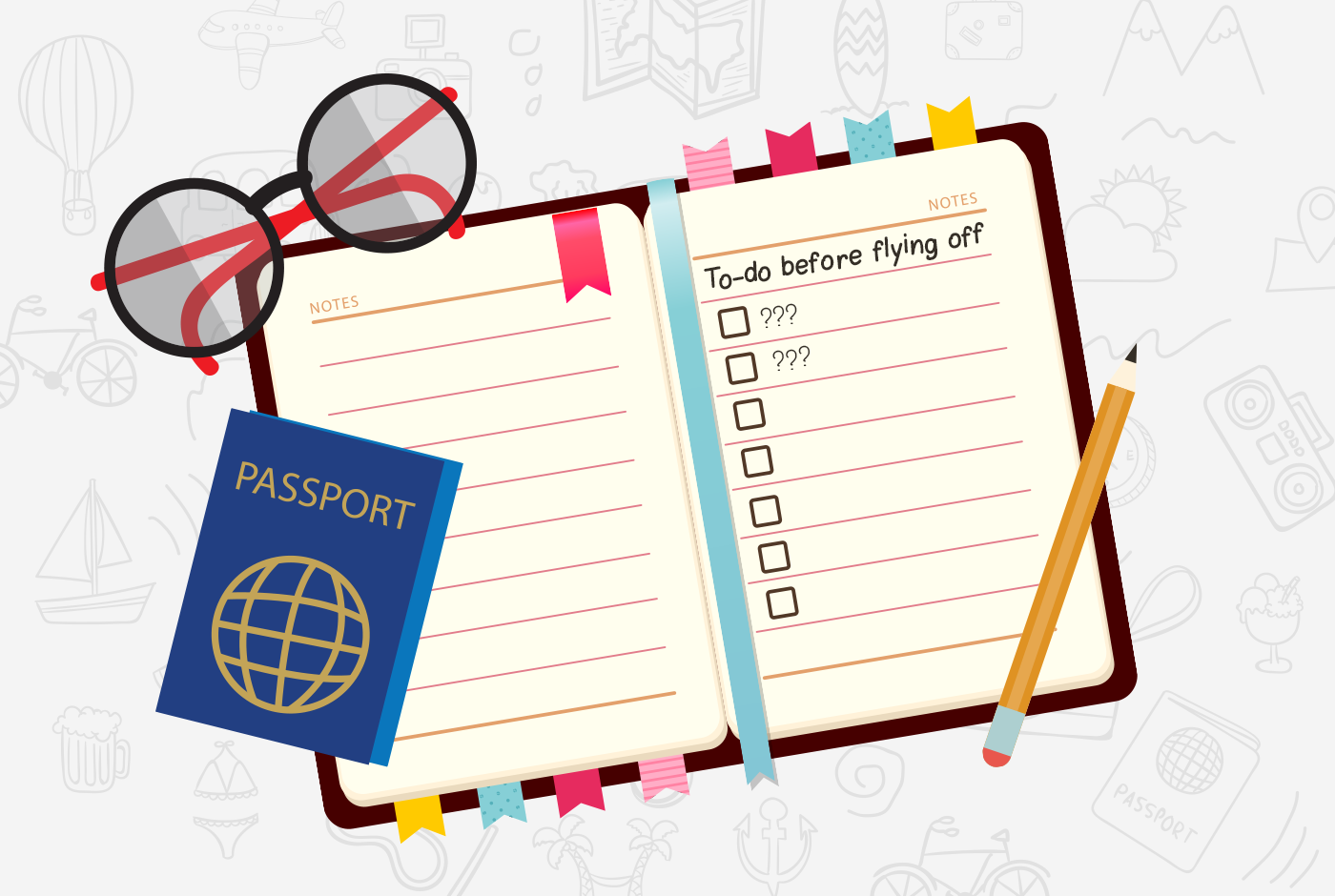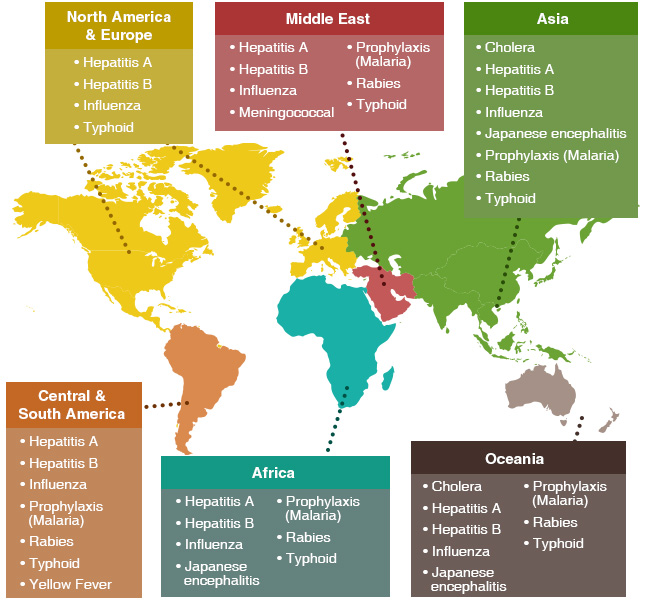Your Holiday Checklist: 8 Things To Do Before Your Vacation

Preparing and packing for a vacation can be a momentous task. You may be tempted to wait till the last minute to pack, but you may also miss out some items in the process, which may make or break your trip.
So what exactly do you need to do or include in your luggage before your trip?
We’ve put together a helpful checklist so you don’t miss anything out:
1. Get the Necessary Travel Vaccinations
What you want is to create wonderful memories of your vacation, and not get the unwanted “gift” of sickness from your place of travel. To reduce your chances of falling ill during or after your trip, getting vaccinated beforehand is a good idea.
“Vaccinations protect you against diseases your body isn’t exposed to in your home country,” said Dr Raymond Choy, General Practitioner, Raffles Medical. “Some countries even require you to provide proof of getting specific vaccinations before allowing you to enter.”
The exact travel vaccines you need depend on your travel destination, so here’s a quick guide to help you decide:


2. Pack a First-Aid Kit
Leave some space in your luggage for a first-aid kit. Not only will it come in handy during minor injuries, it may also save you from an inconvenient visit to the doctor’s.
While your first-aid kit’s contents will vary according to destination, as a general rule of thumb, it should contain:
- Prescribed medications (ideally with your prescription or medication list)
- Anti-itch cream
- Activated charcoal pills
- Antiseptic solutions
- Oral rehydration salts
- Antacids
- Antihistamines / anti-allergy medicines
- Plaster strips
- Sterile cotton balls
- Painkillers
- Medication for food poisoning
3. Get Travel Insurance
Depending on where you’re going and what you’ll be doing, it may be wise to get travel insurance. There’s no telling when unforeseen circumstances will occur during your trip, so getting insured will protect you against such incidents.
Make sure your travel insurance covers:
- Medical emergencies
- Medical outpatient visit and hospitalisation
- Luggage and personal items
- Personal accident and liability
- Trip interruptions or cancellations
- Death or dismemberment
If your trip involves adventurous activities such as scuba diving or skydiving, you may want to upgrade your insurance to cover them, since these activities are usually not included in an average plan.
Also, each travel insurance has different benefits and exclusions, so be sure to go through the fine print before deciding on one.
4. Create a Packing List
Packing for your vacation is more than throwing clothes into your luggage and bringing your passport. Including some nice-to-haves can save you time and money, as well as enhance your travel experience.
Here are some items you want to include in your luggage:
- Power cables and power banks. A must-have if you’re bringing along any electronics for your trip to keep them charged. Remember to keep the power banks in your carry-on though, since they’re not allowed in check-in luggage.
- Power plugs and travel adaptors. So you can charge your electronics in your hotel room.
- Internet-enabled SIM card or Wi-Fi router. Not only does it allow you to stay in touch with your loved ones, your friends can also keep up with your travels on social media.
- Umbrella. You never know when a sudden shower may happen, so pack one to avoid being caught in the rain.
- Personal hygiene products. In case your hotel doesn’t provide them.
- Any supplements. If you’re taking supplements such as vitamin C or antioxidants, bring them along as they can help support your immune system to ward off sickness. For those going on long-haul flights, taking melatonin supplements can be part of your strategy to travel in comfort, since it may improve your sleep quality during the flight.

5. Check Your Passport and Visa’s Validity
Don’t forget to check your passport and visa’s validity! Most countries require your travel documents to have at least six months’ validity before allowing you to enter or depart.
To save yourself from the rush of renewing these documents last-minute, remember to check their validity ahead of time, and renew them if needed.
6. Activate Your Credit Card for Overseas Use
Besides having enough foreign currency, bring your credit card along too. Having one on hand is useful for emergency purchases, or if you need an urgent source of funds. Since all credit cards are deactivated for overseas use by default, get your bank to activate yours before travelling.
7. Make Copies of Important Travel Documents
From your flight and hotel details to your personal identification, it never hurts to have extra copies of your travel documents. Scan and save digital copies in your phone or email. Make physical copies and stash them in a separate place from your actual documents. Losing your original documents while travelling can be panic-inducing, so it always pays to take a few extra precautions
8. Make Use of Google Maps’ Functions
You should download a map of your holiday location from the Google Maps app into your smartphone in advance. If you are lost in an area with spotty Internet connection, the offline Google Map, together with your phone’s GPS function (which doesn’t rely on an internet connection), will help you find your way around.
Another useful function Google Maps has is creating custom maps. You can use it to mark up your travel itinerary visually, and use the app to figure out the most efficient route to your destinations.
Reviewed by Dr Raymond Choy, General Practitioner, Raffles Medical


















